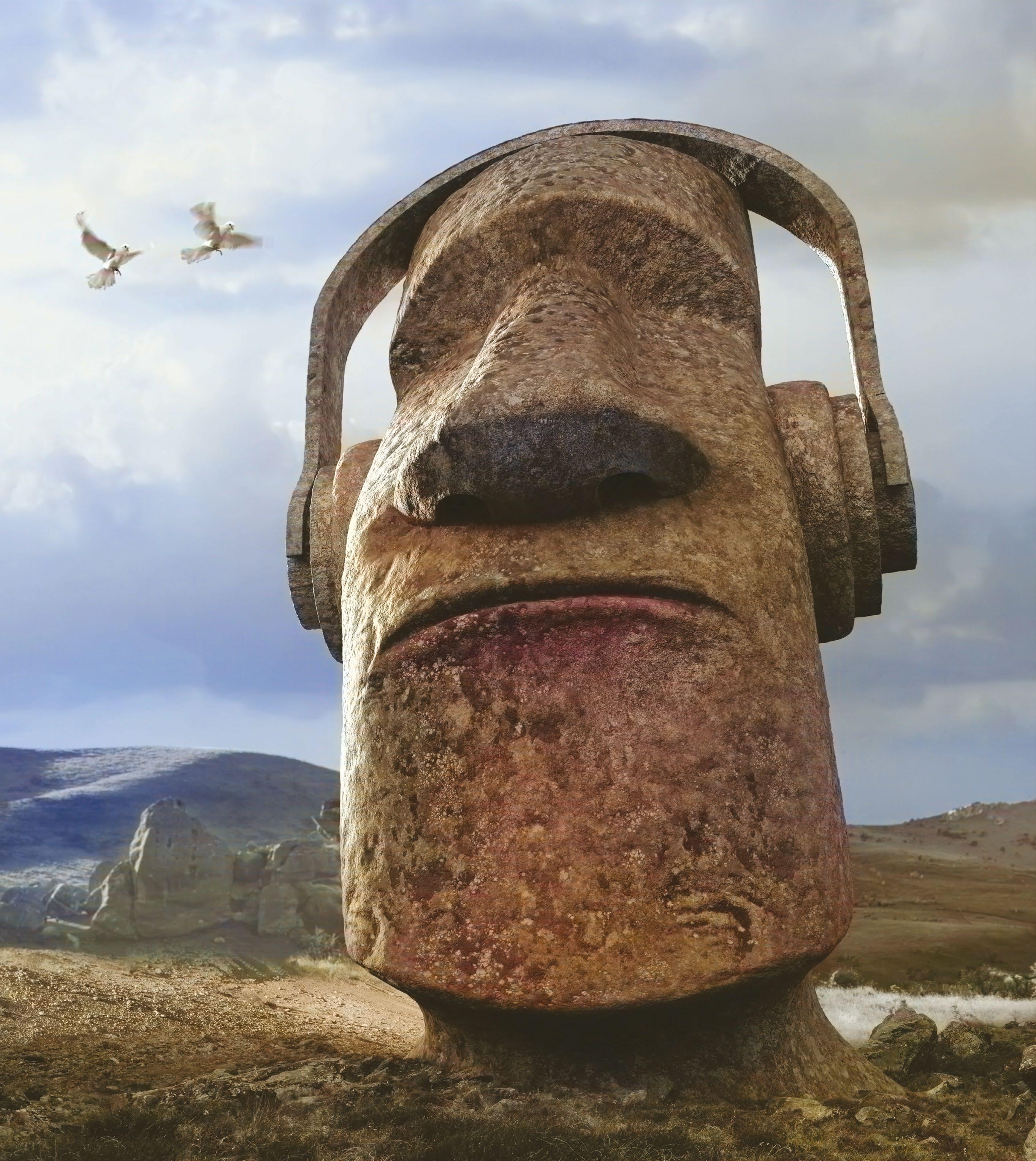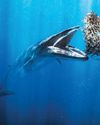
The short answer is no one knows who invented music. No historical evidence exists to say exactly who sang the first song, whistled the first tune, or made the first rhythmic sounds that resembled what people would recognise today as music. However, musicologists (someone who studies the history of music) know that it happened thousands of years ago. Artefacts (objects made by humans) and other evidence can help scientists understand how and why the ancients played music.
The earliest civilisations throughout Africa, Europe and Asia had music. Back then, many humans may have believed it was a divine creation, a gift from the gods. Indeed, gods and goddesses from many religions and mythologies are associated with music. Stories and works of art tell us that the African god Àyàn was a drummer, and the Greek god Apollo played the lyre, an ancient type of string instrument.
Sweet sounds coming down
Some scholars say singing was the first kind of musical sound. Not that people back then were crooning full-length songs. Instead, they made simpler vocal sounds – perhaps just a few notes put together. If that’s true, perhaps early humans began to speak and sing at about the same time.
Denne historien er fra Issue 64-utgaven av The Week Junior Science+Nature UK.
Start din 7-dagers gratis prøveperiode på Magzter GOLD for å få tilgang til tusenvis av utvalgte premiumhistorier og 9000+ magasiner og aviser.
Allerede abonnent ? Logg på
Denne historien er fra Issue 64-utgaven av The Week Junior Science+Nature UK.
Start din 7-dagers gratis prøveperiode på Magzter GOLD for å få tilgang til tusenvis av utvalgte premiumhistorier og 9000+ magasiner og aviser.
Allerede abonnent? Logg på

Camera Obscura
Imagine stepping inside a dark room, where the only source of light comes through one small hole in the wall.

MANCHESTER SCIENCE FESTIVAL
From 18-27 October, shoppers at the Arndale shopping centre in Manchester, England, will face a giant spider.

Should musicians stop touring?
Multiple concerts travelling around the world have a big impact on the environment.

Are ghosts real?
Plenty of people believe in ghosts, but it's hard to find proof.

SMASH STEREOTYPES
In an extract from his prize-winning book, scientist and writer Adam Rutherford shows you how to use the power of science to fight racism. This chapter, titled Myth-Busting, is all about sport.

Animal awareness
What would it feel like to be another animal?

Hamza Yassin
Go behind the camera with a wildlife filmmaker.

WILDLIFE WATCH
Ben Hoare goes on a safari from his sofa to discover how nature documentaries are made.

Big bum breakthrough
A team of researchers who found out that mammals can breathe through their bottoms have won a prize at the lg Nobel awards.

A jaw-dropping undersea snap
A photograph of a Bryde's whale feeding on a heart-shaped \"bait ball\" of sardines has won the Ocean Photographer of the Year contest.